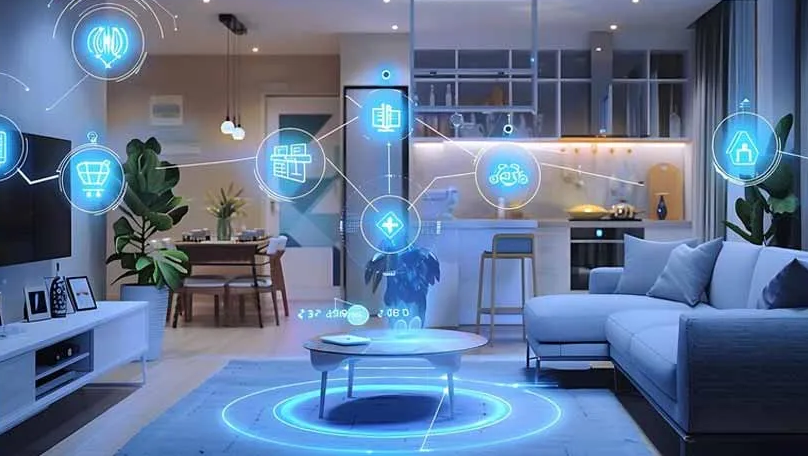
Artificial Intelligence (AI) is no longer just a futuristic concept — it’s quietly becoming part of our daily lives, reshaping how we live, work, and relax at home. From voice assistants to smart security systems, AI technologies are creating smarter, safer, and more efficient homes. Here’s a closer look at how AI is helping transform modern home living.
1. Smart Home Automation
One of the most visible applications of AI in homes is smart automation. Devices like Amazon Alexa, Google Assistant, and Apple’s Siri use AI to learn from user habits and preferences. They can adjust lighting, temperature, or even play your favorite music automatically. For instance, your thermostat might learn your daily routine and set the ideal temperature before you get home — saving energy while keeping you comfortable.
2. Enhanced Home Security
AI-powered home security systems go beyond basic alarms. Modern systems use facial recognition, motion detection, and behavior analysis to identify potential threats. Cameras can distinguish between a family member, a pet, or an intruder, reducing false alarms. Some even send real-time alerts to your phone, giving homeowners peace of mind when they’re away.
3. Personalized Entertainment
AI algorithms are revolutionizing how we enjoy entertainment at home. Streaming services like Netflix, Spotify, and YouTube use AI to analyze viewing or listening habits, recommending shows, movies, or songs tailored to each user’s taste. This personalized experience saves time and makes entertainment more enjoyable and accessible.
4. Energy Efficiency and Sustainability
AI contributes significantly to eco-friendly living. Smart appliances and energy management systems monitor consumption patterns, automatically turning off lights or adjusting appliances to save energy. Some AI systems integrate with renewable energy sources, like solar panels, to optimize usage and reduce utility bills — helping homeowners live more sustainably.
5. Smart Kitchens and Home Appliances
AI is bringing intelligence to everyday appliances. Smart refrigerators can track food inventory, suggest recipes, and remind you when items are about to expire. AI-powered ovens can recognize the type of food being cooked and adjust settings for optimal results. These innovations make cooking easier, healthier, and more enjoyable.
6. Health and Wellness Monitoring
AI-driven devices are also enhancing health and wellness at home. Smartwatches and health monitoring systems track sleep, exercise, and vital signs, offering insights into overall well-being. Some AI platforms can even alert users to irregular health patterns or recommend lifestyle changes, supporting proactive healthcare from the comfort of home.
7. Home Maintenance and Cleaning
Household chores are becoming easier thanks to AI. Robot vacuum cleaners and mopping robots now use sensors and mapping algorithms to clean efficiently without supervision. Some can even detect areas needing extra attention and adjust their cleaning paths accordingly — giving you more time to focus on what matters most.
8. Elderly and Assisted Living
For seniors and individuals with disabilities, AI provides life-changing support. AI-powered monitoring systems can detect falls or unusual activity patterns, notifying caregivers or emergency services immediately. Voice-controlled devices also make daily tasks — from turning on lights to making phone calls — easier and more accessible.
The Future of AI at Home
As AI technology continues to advance, its role in home living will only grow. We can expect smarter, more intuitive systems that anticipate our needs before we even express them. While concerns about privacy and data security remain, the potential benefits — from convenience and comfort to safety and sustainability — make AI an integral part of the future home.
In short: AI is turning ordinary houses into intelligent living spaces. It’s not just about smart devices — it’s about creating homes that understand, adapt, and care for the people who live in them.
